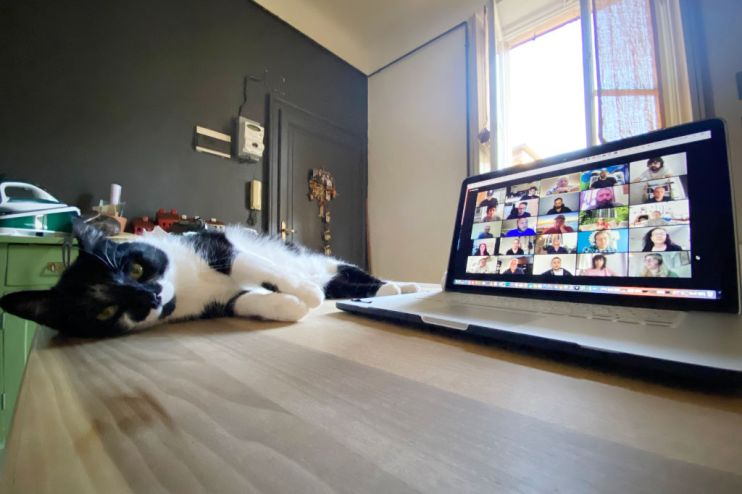Let’s not squander this unique opportunity to harness the benefits of a new model for work

It’s no stretch to say that, without remote working, thousands of businesses would have ground to a halt over lockdown.
The mass work-from-home experiment over the past four months has not only saved them, but shown that it is possible to fundamentally shift ways of working while continuing to be productive and deliver results.
Before the pandemic, more and more business leaders were starting to understand the case for a flexible workforce, and the technology has been there for years. Yet too many were slow to adapt.
Now, there’s no longer room for excuses.
Rather than talking about “back to normal”, smart businesses are considering their post-Covid “new normal”, with the recent experiment in the use of remote technology shining a welcome spotlight on outdated ways of working.
Companies are questioning whether all those face-to-face meetings that required flying around the world are really necessary, given the financial, environmental and personal impact. Some big names like Google and Twitter are extending home-working until at least next year, and a wider conversation is underway across the business community about the negative effect of the daily commute on employees’ health and their pockets.
The truth is that rethinking the entire model of “going to work” is long overdue. New research by BRITA UK, published today, shows that 61 per cent of those in employment pre-lockdown are expecting to work remotely at least part time even afterwards. This is a conversation employers need to be having.
When we consider the future of work, we need to look at the benefits an increase in flexibility can bring, starting with improving equality and diversity.
Rigid office hours combined with a lack of affordable childcare provision have long been a barrier to working parents’ careers, particularly to women (who, as the pandemic exposed, bear a disproportionate burden of household and caring responsibilities). For months now, agile and remote working has enabled parents to fit their jobs around childcare, working in a way that best suits them and their families, without negatively impacting their productivity.
Continuing this model will not only be key to supporting women’s careers and increasing workforce diversity, but enable anyone with caring responsibilities — men included — to participate more fully in family life.
Interestingly, it appears that more flexibility could have benefits for the environment too. As Britain embarks on the journey to net zero carbon emissions, this is a priority no business can afford to ignore.
With more time at home and no daily commute during lockdown, transport emissions are obviously down. Moreover, BRITA’s new research identified a 45 per cent decrease in the number of people buying single-use plastic bottled water on-the-go. Compare that to the company’s finding two years previously that convenience was a pivotal factor behind low uptake of refillable bottles, with travel and meal deals driving purchases of bottled water.
While it’s important to support our hospitality sector, lunching at home or locally at least some days could have a big impact on litter levels and unnecessary use of disposable bottles or coffee cups.
We should also not forget that the new talent business is keen to attract is hungry for change. People’s experiences during lockdown are shaping their outlook and will undoubtedly impact what they look for from a career. Of course, working collaboratively in an office has value, but it doesn’t have to be every day or apply to every employee. It would seem the majority of us don’t want to go back to the way things were — indeed, BRITA found that 71 per cent of us now believe we should be more willing to change behaviour if necessary to respond to a crisis.
A cultural shift which had been sluggishly progressing for decades has been turbocharged by the pandemic. The stigma around working from home disappeared overnight and the overriding convenience factor for unsustainable choices, from plastic-filled takeaway lunches to frequent flying, is diminishing.
As workers embrace new habits and ways of working, businesses need to play their part to encourage more agile working for the long term, and build back better for society and the environment. We have the time and space to lead our lives in a way that works for us all — and the planet. The opportunity to do things differently in the world of work is there for the taking. Let’s not squander it.
Main image credit: Getty